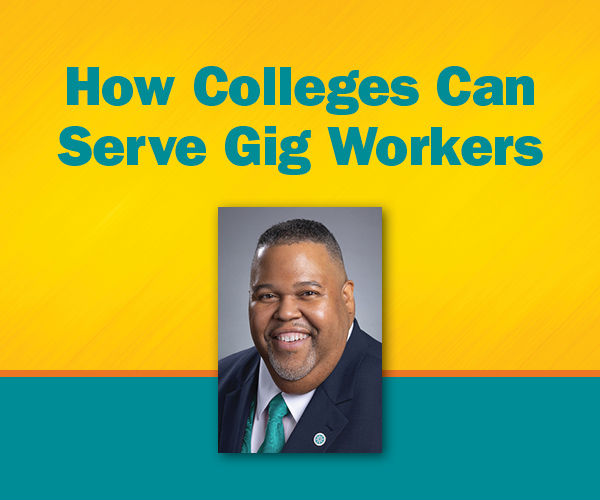Tri-C President Discusses Strategic Approach To Supporting Gig Workers
Michael Baston highlights College’s initiative to engage, educate and elevate entrepreneurs in the modern labor market
 Cuyahoga Community College (Tri-C®) President Michael A. Baston, J.D., Ed.D., recognizes the workforce has changed over the years. Gig work has gained traction, and now, more people are working for themselves.
Cuyahoga Community College (Tri-C®) President Michael A. Baston, J.D., Ed.D., recognizes the workforce has changed over the years. Gig work has gained traction, and now, more people are working for themselves.
In a column for the Community College Daily, Baston said it’s important to understand the nuances of gig work and its implications for higher education institutions — especially community colleges.
To identify those nuances, Tri-C collaborated with Team NEO to publish a comprehensive report to dispel misconceptions about gig workers and emphasize the importance of continuous education to help them assimilate into the workforce.
"Gig work isn’t new, but the internet and other technological advances have made it more accessible," Baston said. "The broader question for higher education institutions — and community colleges in particular — is how to support this emerging generation of gig workers."
Baston shares how Tri-C is engaging this segment of workers that other community colleges can model:
- Tri-C wants to engage gig workers by raising awareness and advocating for gig workforce opportunities. This means debunking popular myths and spotlighting the contributions gig workers can make as an untapped resource in the labor market.
- The College continues to collaborate with faculty, business owners, students and employers to ensure its educational offerings remain relevant to the shifting landscape of the gig economy.
- Tri-C is leveraging its existing programs and resources to increase the skill sets of gig workers.
- Gig workers often have specialized skills but may lack entrepreneurial skills. By investing in and promoting entrepreneurial resources, Tri-C provides support for gig workers through mentorship programs and networking opportunities to nurture the entrepreneurial aspirations of gig-minded individuals.
- Community colleges can invest in additional support to ensure equal access to training programs and resources for underrepresented gig workers, such as extra funding, scholarships or specialized counseling services.
"The gig economy is here to stay. It’s up to community colleges to shift their mindsets to support entrepreneurial training to reach this segment of workers," Baston said.
Read the entire column on Community College Daily's website.
May 08, 2024
By Dylanne Weese, 216-987-4281 or dylanne.weese@tri-c.edu
